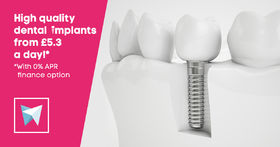
Where we live affects our dental health, as what we eat and how often we brush is a cultural issue first and foremost. But where we live also affects how often we go to the dentist for a checkup or for any sort of dental treatment.
The Problem
A recent interview with a Hungarian dentist provides some staggering insights. It turns out that tooth decay affects nearly 100% of the adult population of Hungary. The article also reveals that Hungarians usually do not go to the dentist at all, with the average person never going for check ups, while those who do go once a year at their most frequent.
Hungarians seem to be locked in a cycle of fear and tooth decay. Bad oral hygiene leads to frequent and painful treatments when checkups are due, which in turn leaves people with a bad experience, which in turn makes them less likely to show up next time, which leads to more tooth decay. This is also shown by the poor rate of toothbrush and toothpaste purchases, just 0.8 toothbrushes are bought a year, instead of the recommended 4, and only 2.8 tubes of toothpaste is bought, instead of the recommended 8.
Men also have significantly worse oral health than women, which is a problem, as oral cancer and other more serious illnesses are more likely to affect males than females. The other problem is that Hungarians do not seem to understand the severity of their condition. Tooth loss is common, and is not understood as a condition, but an unfortunate but negligible turn of events.
Fear
It can be said that Hungarians are afraid of the dentist, even though in certain cases, the treatment is free. This is not only due to negative experiences at the dentist, as these are negligible cases, but mostly due to the fact that when you show up to the dentist with poor oral hygiene, treatment will commence, and usually it will not be just a cleaning, but a potentially painful root canal treatment, or at the very least a filling. Most dentists are also not available on the weekends or after work hours, and Hungarians are reluctant, or sometimes simply unable to take a day off of work to go and have a checkup, and thus the only time they do show up to a dentist is when something is already amiss.

Breaking The Chain
Getting out of this cycle of bad oral health is difficult. As long as Hungarians cannot make time to go to the dentist, and are afraid to do so, nothing will change. A massive restructuring of public dental care is needed in order to bring things up to a European standard, or a massive raise in pay, to be able to pay for a private dentistry, but unfortunately for Hungarians, neither is on the horizon anytime soon.


 Call
Call Send
Send Find us
Find us Connect
Connect